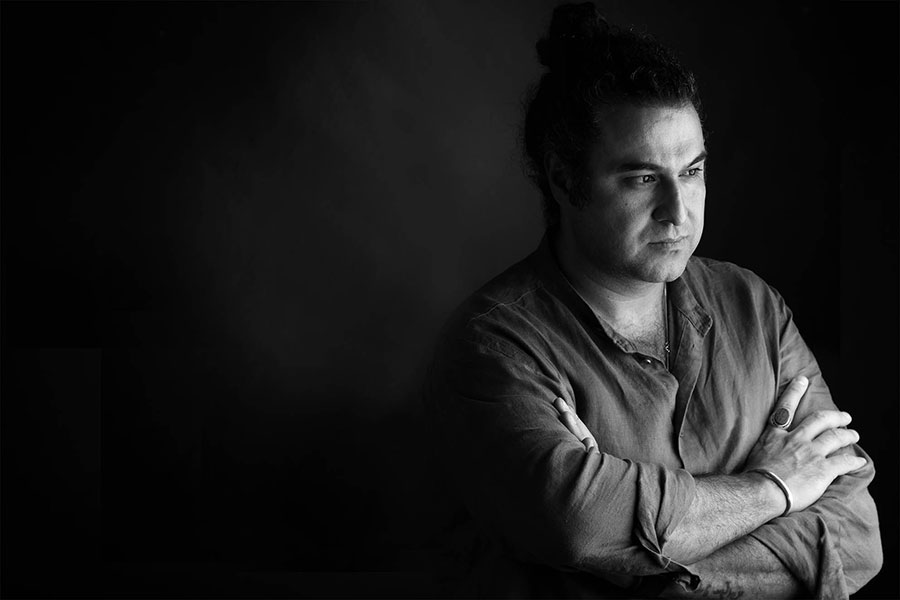
His Work
In his recent collection, “Transition – Burnt Poems,” Kordi explores the feelings of insecurity stemming from his upbringing in a traditional society. Using cherished childhood possessions, he delves into the process of reconciling with gender conventions, social status, and domination, both as a child and now as an immigrant.
In addition to his sculptural endeavors, Kordi has ventured into filmmaking, adopting a realist approach to grapple with the interplay between mythmaking and portraying reality. Despite the overarching theme of myth, his cinematic philosophy is grounded in realism, capturing the contemporary moment and distilling it into a singular word.
For Kordi, cognitive life shaped by ancestral experiences plays a pivotal role in understanding the present. He asserts that perfection remains elusive without acknowledging the grammar of the past, and he encourages a thorough examination of one’s history in the journey to self-discovery.
In his reflective pursuit, Kordi explores the intricacies of embedding realistic cinema within the fabric of myths, addressing questions about the temporal facets—both present perfect and reductive mythological—interwoven into the cinematic narrative. His inquiry into whether modern individuals truly live in real-time or are entangled in the dance between the past and the present adds depth to his artistic exploration.
About MK
Mohammad Kordi (b. 1985) is an accomplished sculptor and filmmaker whose creative journey spans nearly two decades, marked by a deep exploration of diverse materials and techniques.
Born in Yazd, Iran, Kordi graduated from the Art School of Fine Arts in his hometown before establishing his first private studio in Tehran at the age of 20. Since 2015, he has split his artistic practice between Iran and Paris.
Throughout his career, Kordi has mastered various materials, including bronze, steel, aluminum, oil, mercury, and various casting methods. His meticulously crafted artifacts not only showcase technical proficiency but also encapsulate his personal experiences, challenges, and emotions. Utilizing reductive mythological concepts, Kordi navigates the complexities of life, delving into his own emotions and the socio-cultural conditions of his environment.
Internationally recognized, Kordi’s works are featured in permanent collections at esteemed institutions such as the Tehran Contemporary Museum of Art (TMOCA) and the Museum Funf Continents in Munich, Germany. His pieces also grace significant private collections alongside those of other leading contemporary artists.